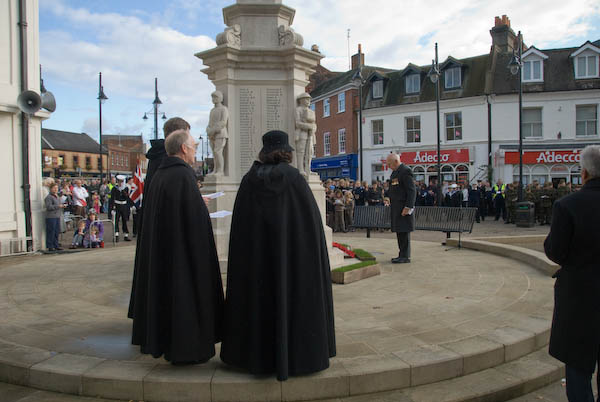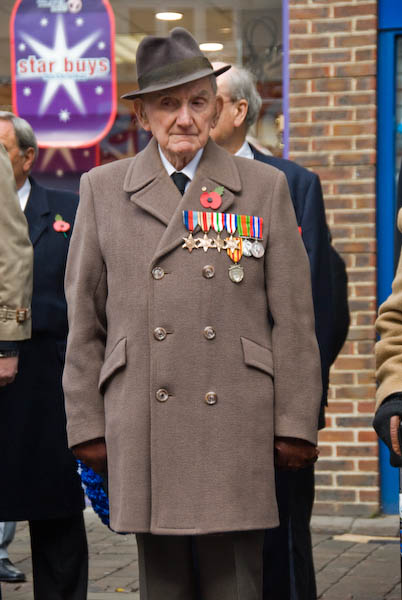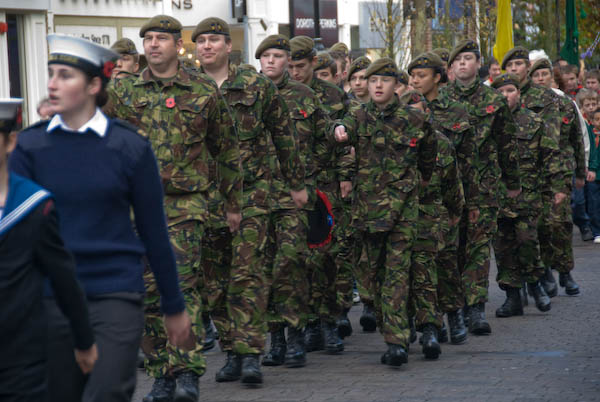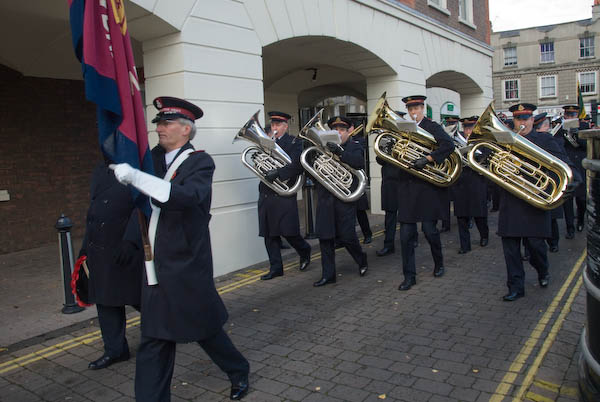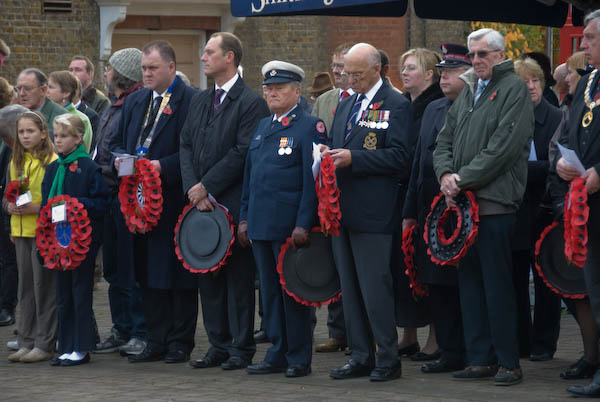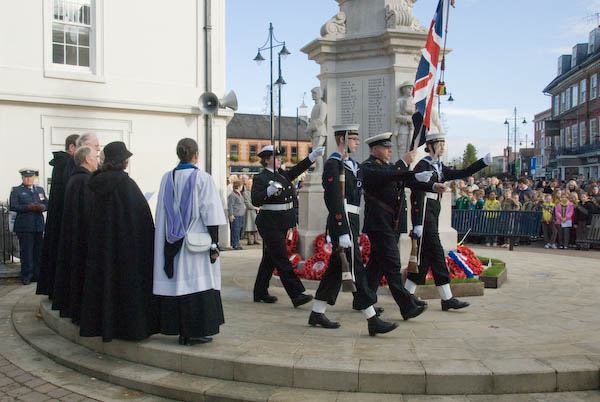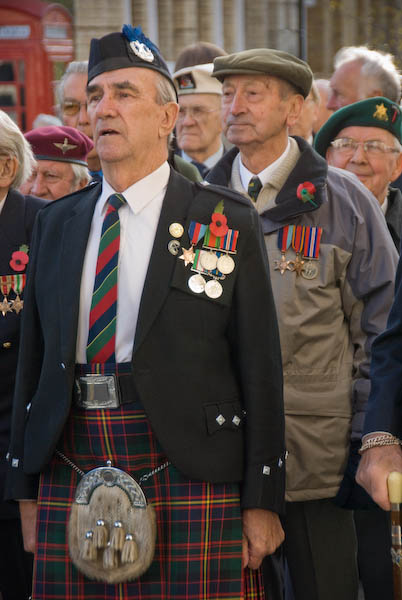Armistice Day Protests – Today I hope to be photographing a huge protest calling for a ceasefire in Gaza and peace in the Middle East as it makes its way from Hyde Park to the US Embassy. It’s an event some Tory politicians have tried to arouse controversy around, aided by some of the media in their lies. Armistice Day has always been an occasion for protests for peace and making it out as some huge national celebration we all share in is untrue as this post shows.
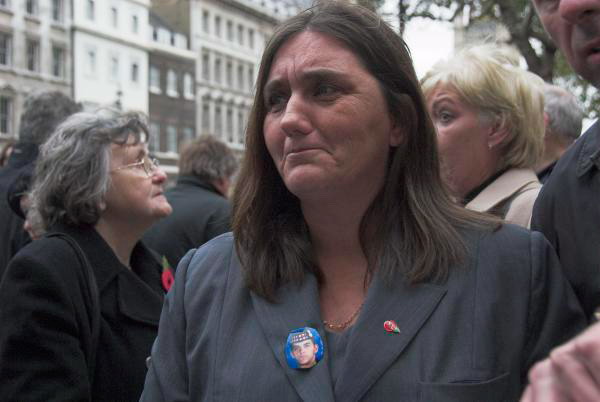
Both the BBC and the Tories seized on the fact that some people at a protest in London shouted ‘Jihad!’ but lie in saying it was an offshoot from the huge march taking place in London calling for peace and justice for Palestine.
It’s a lie that the BBC continues to let them promulgate without question, although their journalists must surely know that this was at an entirely separate protest organised by Hizb ut-Tahrir Britain, an Islamic fundamentalist political organisation dedicated to the establishment of an Islamic caliphate, whose lead banner at their protest read “Muslim Armies! Rescue the People of Palestine!”.
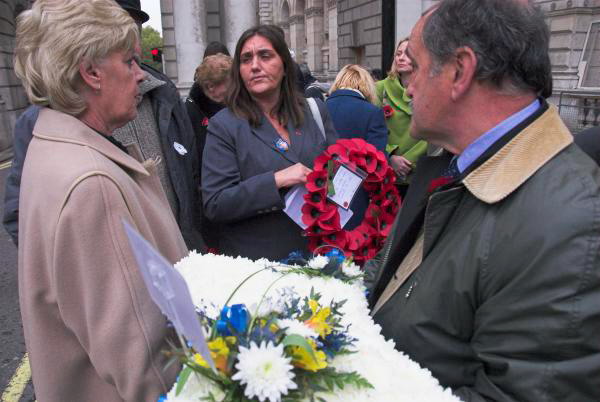
I’ve photographed many protests by Hizb ut-Tahrir in London since I first came across them in 2004 and they are very different and entirley separate from those organised by mainstream Muslim organisations, Stop The War, CND and the others now leading the protests by hundreds of thousands across the country calling for an end to the killing of civilians – whether Palestinian or Israelis – in Palestine and Israel. Most are particularly enraged by the killing of so many children in Gaza by air strikes which Israel claims are targeted, but are targeted on places where many people live and so die in them.
I think most of us who march – and the many more who support the marches but are unable to attend – want peace and the justice that can only come if there is a thriving country where Palestinians can live normal lives in peace and not under military rule and an apartheid regime.
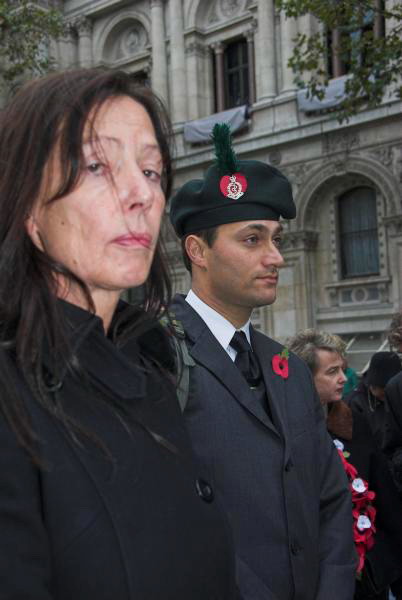
Probably that can only come about with a two-state solution and a massive world aid programme to restore the incredible damage in Gaza as well as establishing rational borders for Palestine with the removal of many of the illegal settlements.
I grew up in a largely working class area on the outskirts of London in the 1950s, and then I think it was true that virtually the whole of the country paused to celebrate and commemorate the armistice, joining in with the minute’s silence in schools, shops, works and offices and traffic on the roads coming to a halt.
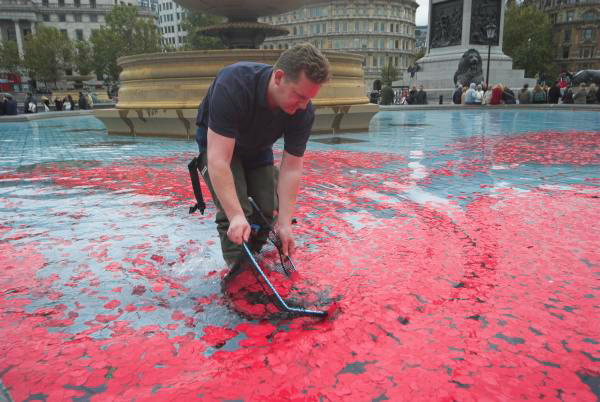
But even then relatively few joined in the military style parades on Remembrance Sunday, with most of my friend’s parents who had fought in WW2 having had more than enough of that kind of thing. My attendance was compulsory as a Wolf Cub and Boy Scout but I resented it and my freezing legs as cold November winds blew up my shorts – and the derision from friends who weren’t members. And by the time I was a Senior Scout we collectively refused to take part.
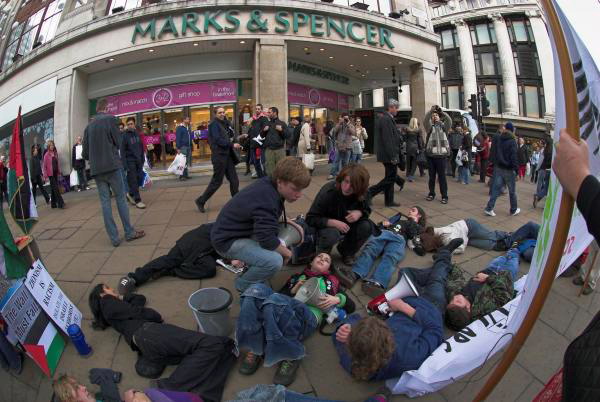
The idea that Armistice Day is not a suitable day for a peaceful protest calling for an end to the fighting and peace in the Middle East seems to me to be beyond absurd – yet again is taken seriously and promoted by the BBC. Armistice Day has I think always seen protests for peace – and November 11th 2006 was no exception.
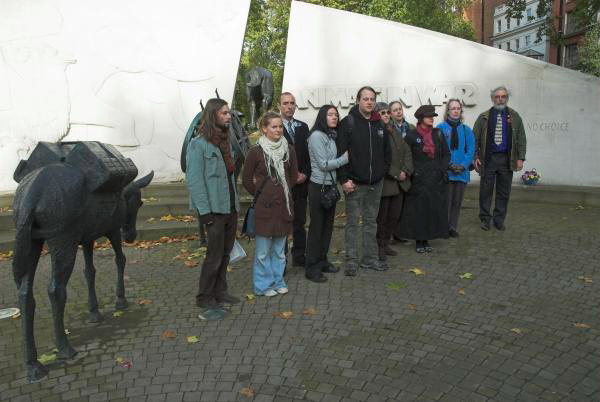
On that day I began on Park Lane, where there was a brief ceremony in front of the sculpture commemorating animals who died in war in the central area there at 11 am. There were only a small group there, wearing poppies they described as purple, though to me they seemed more lilac or mauve. In 2018, the Peace Pledge Union sold 122,385 white poppies: more than any year since white poppies were first worn in 1933, and many keep their white poppies to wear in following years, as unlike the red poppies their sale is not intended to raise funds but they are simply worn as a symbol of remembrance and peace.
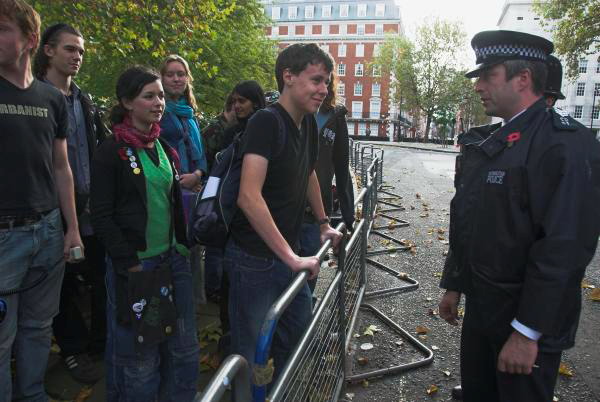
I moved on to Grosvenor Square and the US Embassy where School Students Against The War had scheduled a ‘die-in’. Unfortunately only around 20 had turned up for it – probably now many work on Saturdays or prefer to enjoy a lie-in at home.
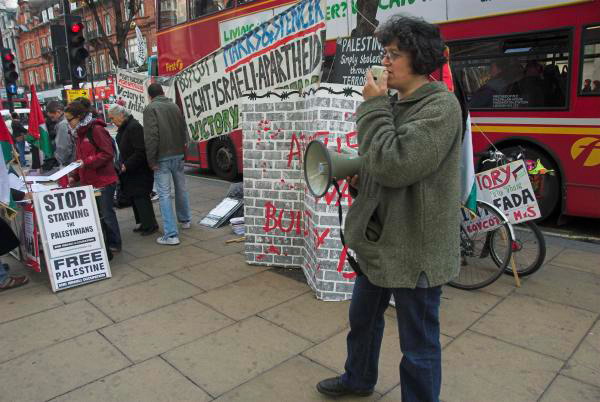
Another short walk took me to Marks & Spencer on Oxford Street, where a protest was taking place as a part of the fourth International Week of Action against the Apartheid Wall in Palestine.
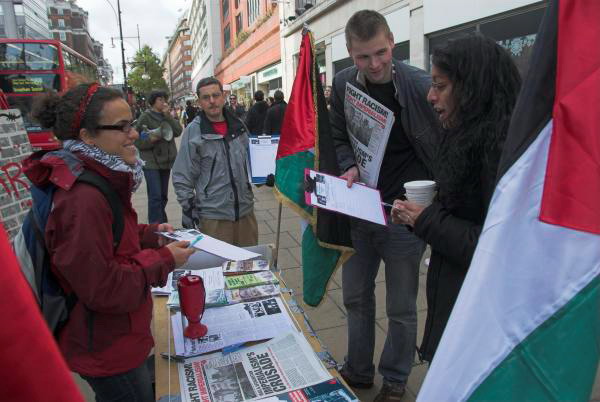
Fight Racism, Fight Imperialism who had organised this event also hold regular vigils outside M&S every Thursday evening, calling for a boycott of the company as part of a wider Boycott Israel campaign. M&S sell goods including those coming illegally from the occupied territories of Palestine and give financial and moral support to Israel.
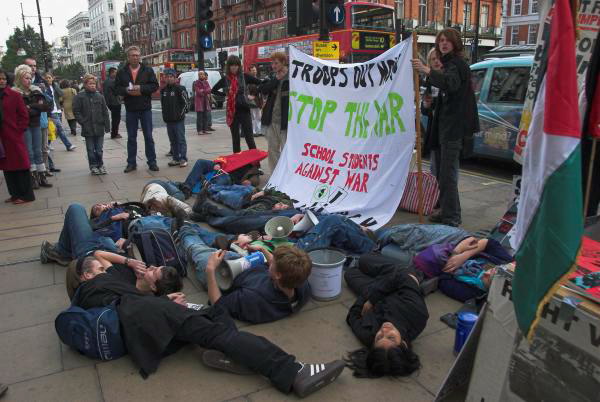
School Students Against The War came from the US Embassy to join them and staged their die-in on the wide pavement in front of M&S. This certainly generated a great deal of attention and they made some short speeches to the the crowds milling past M&S before marching off down Oxford Street with their megaphones and banner. They staged a second ‘die-in’ further down the street, again attracting the attention of shoppers, although perhaps surprisingly, not the police none of whom seemed to be around.
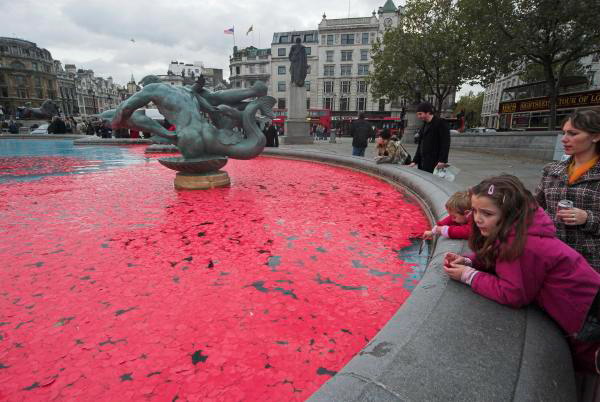
I went on to Trafalgar Square where I hoped to photograph the fountains filled with red poppies, but I arrived a little late to find a man in waders fishing them out with a shrimp net. It was bizarre if not surreal, although not quite what I’d been hoping for.
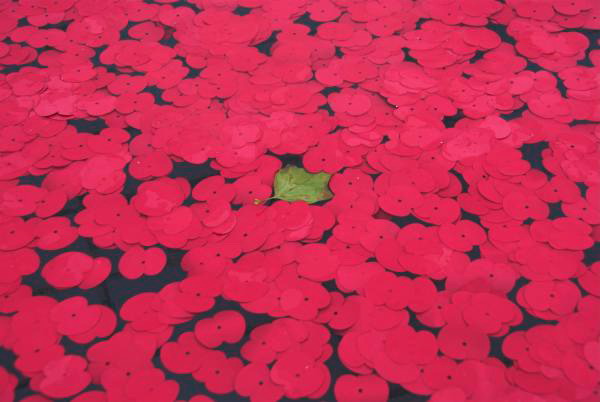
My main event of the day was taking place on Whitehall, at the Cenotaph. Not the military parade ‘at the eleventh hour‘ which I had refused to cover, but a commemoration by some of the families of servicemen killed in Iraq.
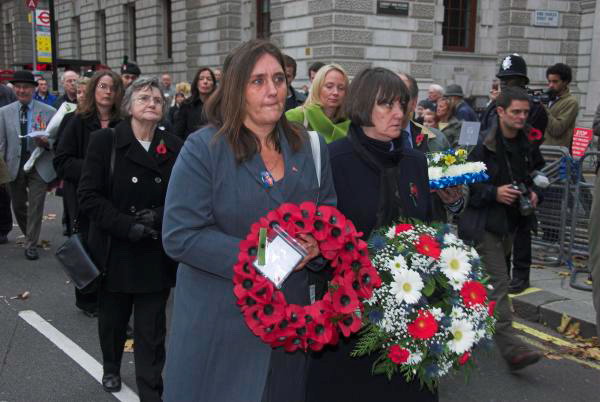
Led by a piper they marched solemnly to stand in front of it, while they came up to read out the names of the 121 dead British servicemen killed in the Iraq war. A small selection of names of Iraqi civilians killed was also read out. It’s difficult to estimate the exact number who have died, and more deaths have occured since 2006. The US Brown University Watson Institute now states “we know that between 280,771-315,190 have died from direct war related violence caused by the U.S., its allies, the Iraqi military and police, and opposition forces from the time of the invasion through March 2023.”
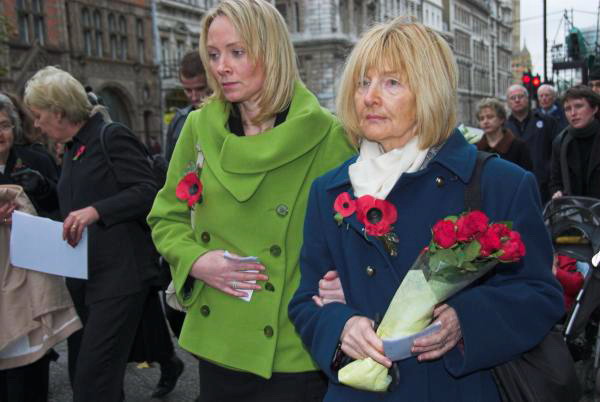
A deputation then took a letter in to Downing Street for Prime Minister Tony Blair who had misled parliament and ignored the largest protest ever seen in the UK to take the country into a misguided invasion together with the USA.
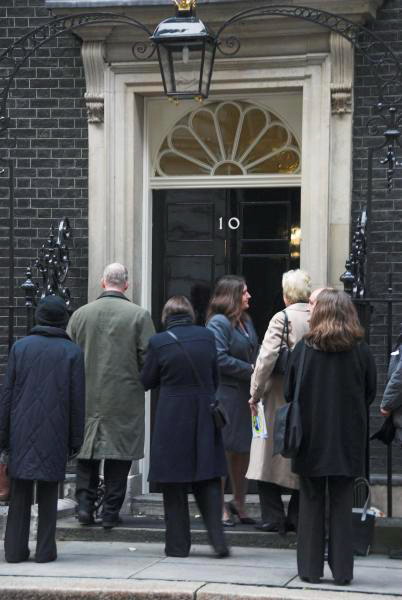
Among those taking part in what was an extremely moving ceremony were Rose Gentle of Military Families Against The War, and others who have lost sons or partners in Iraq, including Ann Lawrence, Roger Bacon, Natasha Mclellan, Maureen Bacon as well as Lance Corporal George Solomou, from the London Regiment of the Territorial Army who refused to go to fight in Iraq. Families of some serving soldiers also took part.
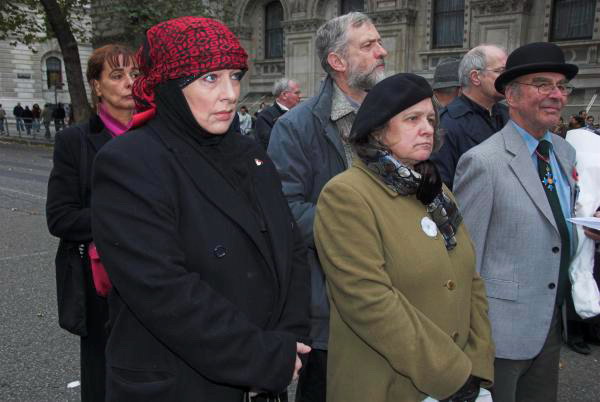
Also there and supporting the event among others were Kate Hudson of CND, Yvonne Ridley and Lindsey German of Respect and Stop The War, fashion designer Katherine Hamnett, and Jeremy Corbyn MP.
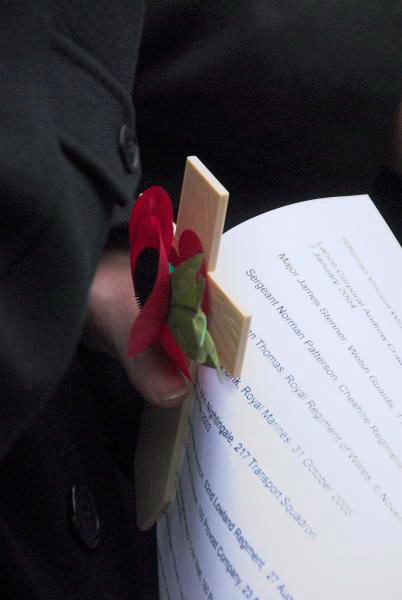
This was an event that attracted considerable media attention; there is a delicate balance between intruding on private grief, but those there had chosen to make their grief public, and we had to record it for them.
More Pictures on My London Dairy – Scroll down the page there for links.
